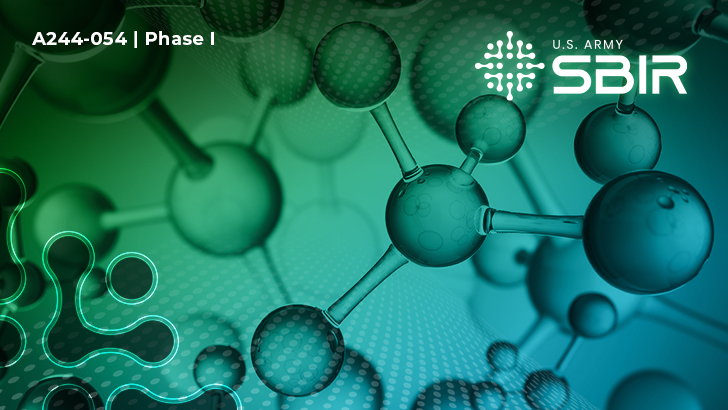

Objective
Develop a technique and/or technology through material properties and internal geometry, that replicates the shear properties of Depleted Uranium (DU).
Description
This topic accepts Phase I proposals submissions for a cost up to $250,000 for a 6-month period of performance.
Depleted Uranium (DU) is a critical material with limited supply and controversy. Many coalition forces do not use DU in their munitions and with some large contractors no longer working with the material, it is important that alternatives are found. Utilize modern and emerging additive manufacturing technologies and techniques to create unique geometries with high-density materials that replicate at least 90% of DU’s shear properties by combining the material’s innate properties with internal, printed, geometric properties. In this topic, high-density materials are defined as any material with a density of 18g-cm3 or higher.
Phase I
Detailed reports of the feasibility of the topic, including expected costs for Phase II testing and beyond for each award. It is important that this report also includes a plan for commercialization of this technology from each award.
Phase II
Initial test batching of additive manufacturing parts with modified internal structures. The remainder of Phase II will consist of applications of the new technology in the aforementioned program. It is also important that the technology shows both reliability and producibility as scale within this phase.
Phase III
Final selection, integration, and commercialization. Focus on integration into the chosen program in preparation for large scale manufcaturing/production using the techniques and/or technology. It is important that at this phase that there are clear commercialization paths in other industries. See below for examples.
Submission Information
For more information, and to submit your full proposal package, visit the DSIP Portal.
SBIR|STTR Help Desk: usarmy.sbirsttr@army.mil

References:
Objective
Develop a technique and/or technology through material properties and internal geometry, that replicates the shear properties of Depleted Uranium (DU).
Description
This topic accepts Phase I proposals submissions for a cost up to $250,000 for a 6-month period of performance.
Depleted Uranium (DU) is a critical material with limited supply and controversy. Many coalition forces do not use DU in their munitions and with some large contractors no longer working with the material, it is important that alternatives are found. Utilize modern and emerging additive manufacturing technologies and techniques to create unique geometries with high-density materials that replicate at least 90% of DU’s shear properties by combining the material’s innate properties with internal, printed, geometric properties. In this topic, high-density materials are defined as any material with a density of 18g-cm3 or higher.
Phase I
Detailed reports of the feasibility of the topic, including expected costs for Phase II testing and beyond for each award. It is important that this report also includes a plan for commercialization of this technology from each award.
Phase II
Initial test batching of additive manufacturing parts with modified internal structures. The remainder of Phase II will consist of applications of the new technology in the aforementioned program. It is also important that the technology shows both reliability and producibility as scale within this phase.
Phase III
Final selection, integration, and commercialization. Focus on integration into the chosen program in preparation for large scale manufcaturing/production using the techniques and/or technology. It is important that at this phase that there are clear commercialization paths in other industries. See below for examples.
Submission Information
For more information, and to submit your full proposal package, visit the DSIP Portal.
SBIR|STTR Help Desk: usarmy.sbirsttr@army.mil
References:
